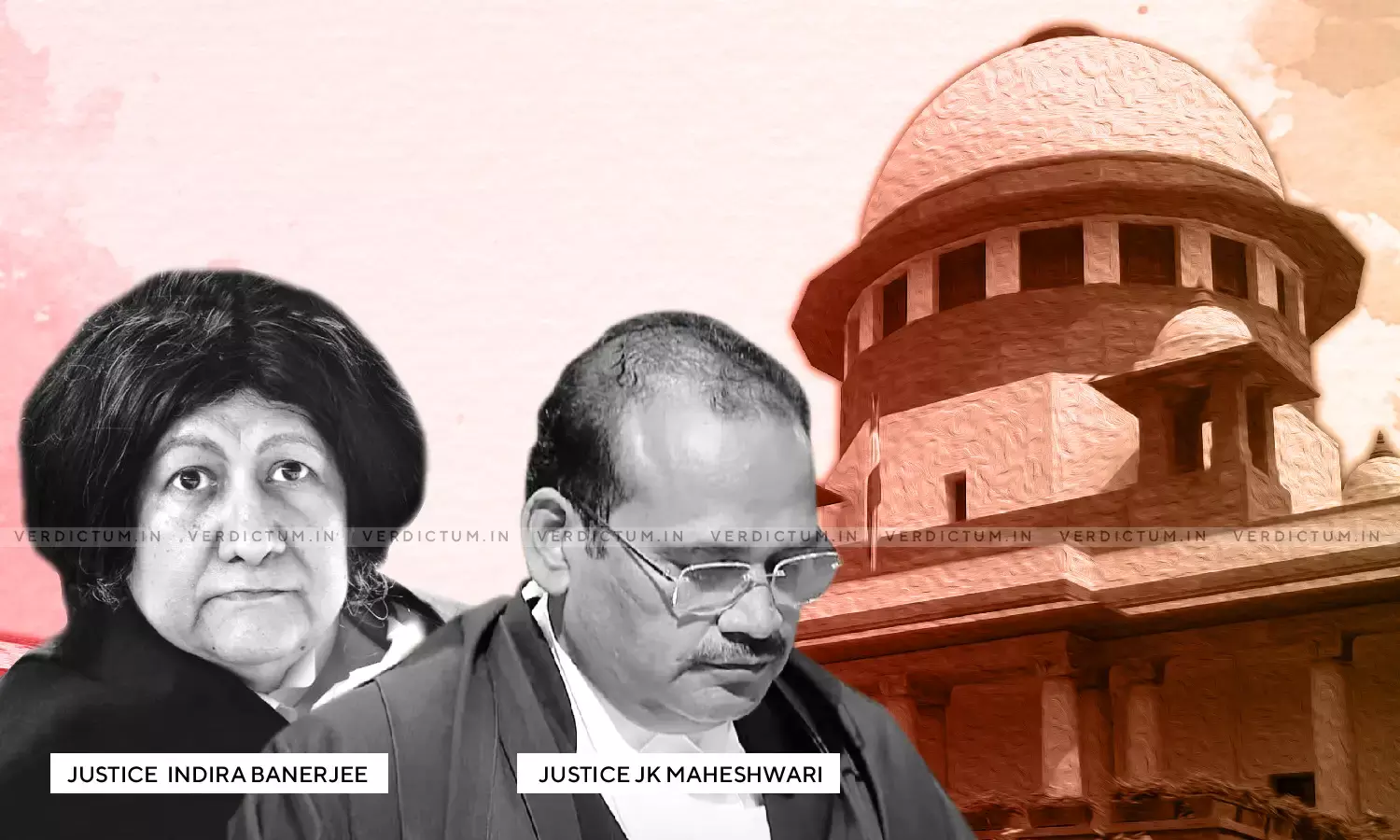Principle Of Res Judicata Not Applicable Where Cause Of Action For Initiation Of Proceedings Is Distinctive – Supreme Court
Principle Of Res Judicata Not Applicable Where Cause Of Action For Initiation Of Proceedings Is Distinctive – Supreme Court

A Supreme Court Bench of Justice Indira Banerjee and Justice JK Maheshwari heard an appeal against a judgment and order passed by the Madhya Pradesh High Court. The Bench dismissed the primary contention which was based on the principle of res judicata, and subsequently dismissed the appeal.
To that end, the Bench opined that "Where an issue could have been raised in earlier proceedings, but has not been raised, the principle of constructive res judicata would be attracted to deny relief, for it is not the policy of law that multiple proceedings should be initiated in Court in relation to the same cause of action. Where the cause of action for initiation of proceedings is a distinctive cause of action, the principles of res judicata would not apply."
Senior Advocate Debal Banerji appeared for the Appellant-Bank.
In 1975, the Respondent was appointed to the post of Agricultural Assistant in the Appellant-Bank. Over four years after his appointment, the Respondent was served with a chargesheet alleging that he had impersonated his brother in a Written Test conducted by the Bank, and answered the questions on his behalf. Subsequently, a Disciplinary Enquiry was held, after which the services of the Respondent were terminated by the Appellant-Bank.
The Respondent raised an industrial dispute. Through a notification, the Ministry of Labour referred to the Central Government Industrial Tribunal cum Labour Court (Tribunal) the dispute of - Whether the action of the management of the Appellant-Bank in dismissing the Respondent from service is justified? If no, to what relief is the workman entitled?
In 2008, the Tribunal held that the Appellant-Bank was not able to prove the charge of impersonation against the Respondent, and therefore the dismissal was unjustified. The Tribunal did find that the Respondent had gainfully been employed throughout the interregnum period after termination, and therefore limited relied to reinstatement without back wages.
In 2009, the Respondent filed a Writ Petition in the High Court, challenging the award of the Tribunal insofar as being declined back wages.
The Appellants also filed a Writ Petition against the award, insofar as being directed to reinstate the Respondent.
By a common judgment, the High Court dismissed both the Petitions.
In 2013, the Respondent moved a Writ Petition before the High Court, seeking orders that the Appellant-Bank reinstates the Respondent to the post of Agricultural Finance Officer, with notional fixation of pay up to the date of the award of the Tribunal. The Respondent also sought for payment of actual salary from the date of the award. Further, the Respondent prayed that the Appellant-Bank should be directed to fix the seniority and the current salary of the Respondent, taking into consideration his past services.
The Single Judge allowed this Petition and held that the Respondent would be entitled for all the benefits except back wages, construing him to be in service from the date of removal till the date of actual reinstatement in service, and also held that he would be eligible for regular salary from the date of reinstatement.
The Appellant-Bank approached the Supreme Court.
The Appellant-Bank raised a contention that the High Court did not specifically deal with the issue of res judicata. In context of the same, the Supreme Court held that "Even though, the Court may not have specifically dealt with the issue of res judicata raised by the Appellant-Bank as a preliminary issue, it is clear from the judgment and order of the Single Bench as also the impugned judgment and order of the Division Bench, that the second writ petition was not barred by the principles of res judicata or analogous principles.", as the Court opined that where the cause of action for initiation of proceedings is a distinctive cause of action, the principles of res judicata would not apply.
The Supreme Court reasoned that the issue in the earlier Petition was the legality of the award, and the issue in the later Petition was the fixation of pay and seniority.
Opining that the High Court rightly granted relief to the Respondent, the Supreme Court held that "By the impugned judgment and order, the Division Bench of the High Court dismissed the Appeal of the Appellants and directed that the Respondent would have to be treated in service from the date of removal till the date of actual reinstatement in service and would accordingly be entitled to seniority and the right to be considered for promotion, but would not be entitled to back wages. We find no infirmity with the concurrent findings of the Single Bench and the Division Bench of the High Court. There is a difference between reappointment and reinstatement. Reinstatement means to return a person or thing to its previous position or status. An order of reinstatement puts a person back to the same position."
Dismissing the appeal, the Court held that the Appellant-Bank could not take advantage of its own wrong of wrongfully dismissing the Respondent from service by denying him the benefit of seniority, promotion, and other benefits to which he would have been entitled if he had attended to his duties.
Cause Title - Central Bank of India & Others v. Dragendra Singh Jadon
Click here to read/download the Judgment

